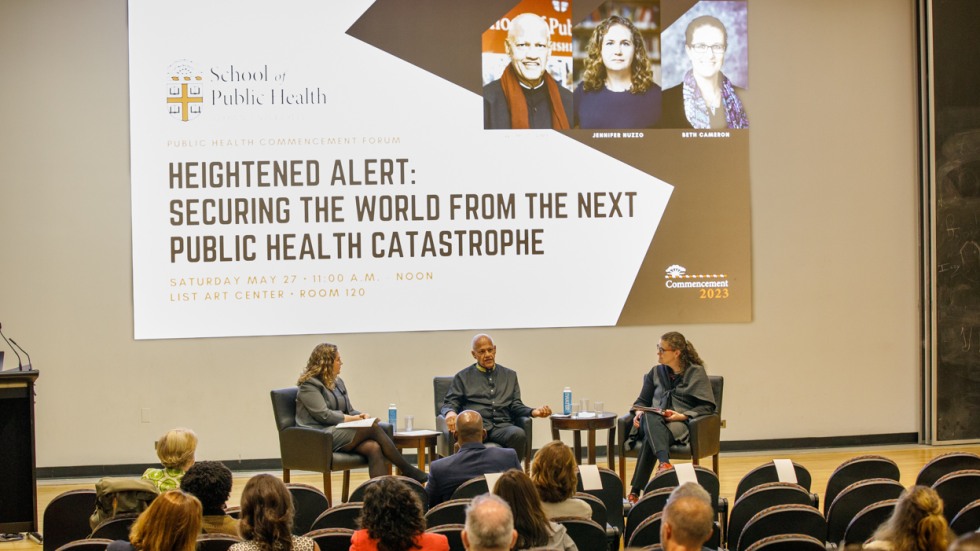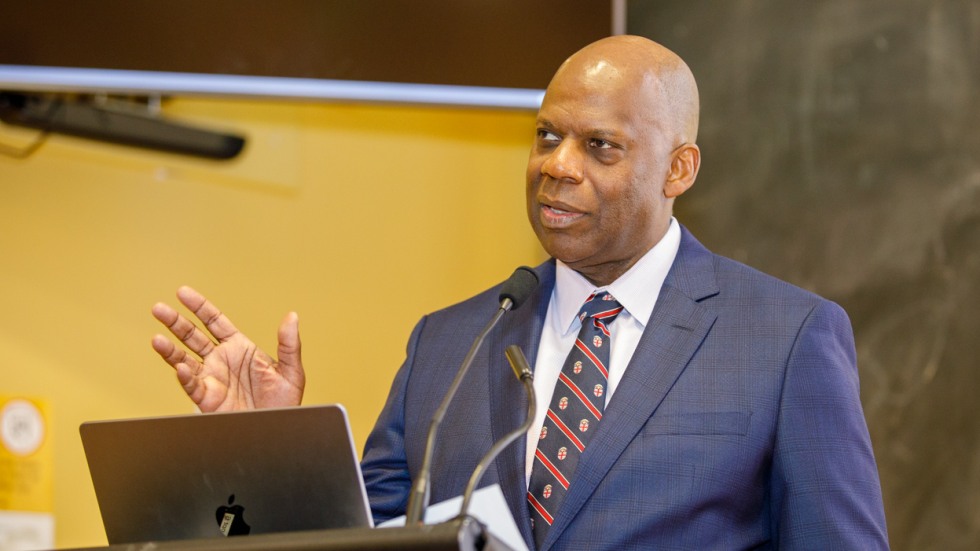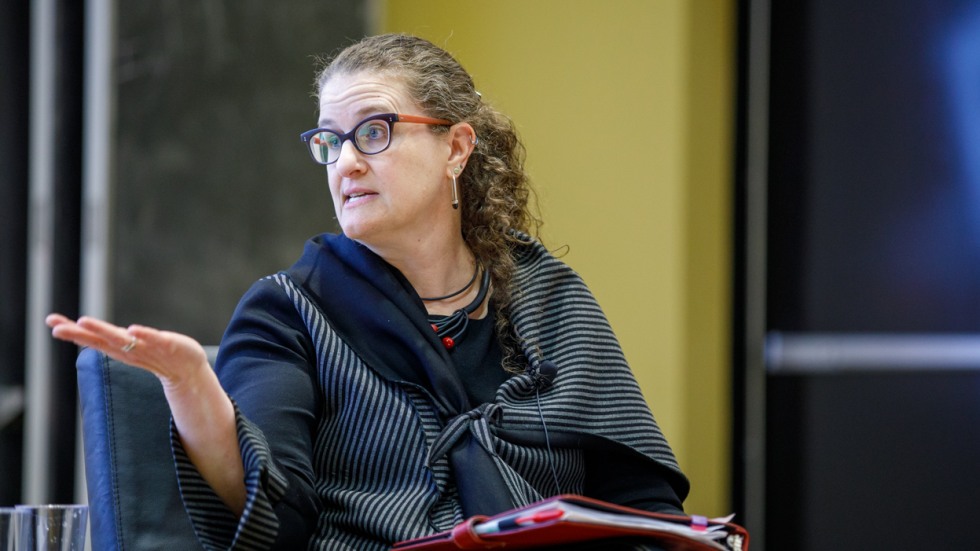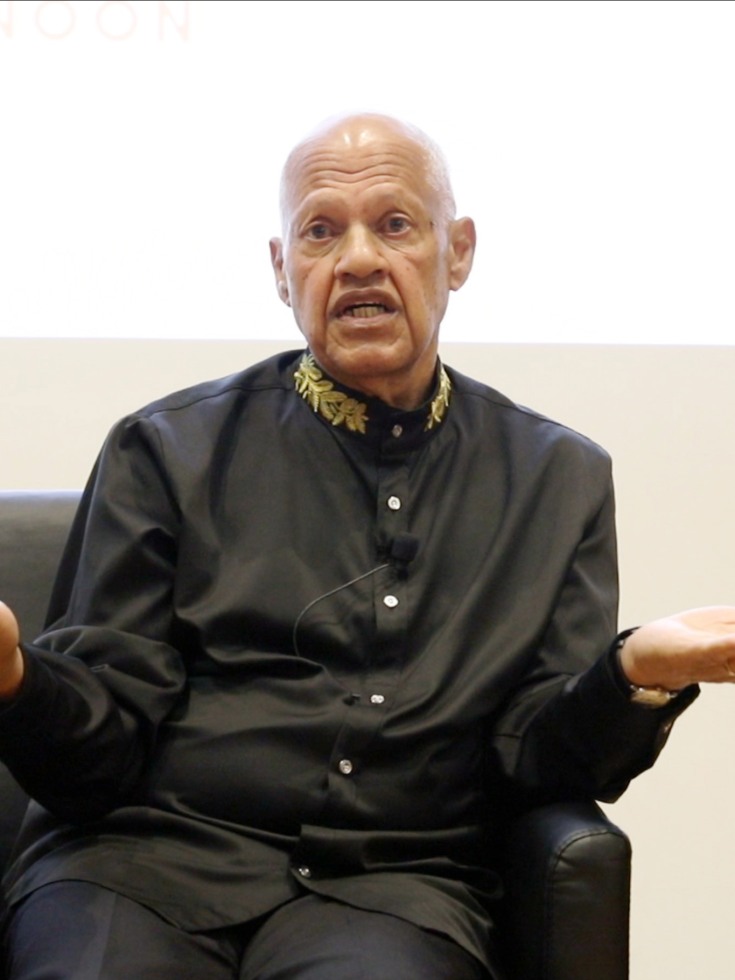As a part of Brown University’s 2023 Commencement weekend celebration, three faculty members of the Pandemic Center at Brown’s School of Public Health convened the forum, “Heightened Alert: Securing the World from the Next Public Health Catastrophe.” Jennifer Nuzzo, the center’s founding director, along with Beth Cameron and Wilmot James, two senior advisors and internationally recognized thought leaders in biosecurity, discussed the center’s efforts in preparing for the next infectious disease emergency.
“I can only imagine what some of you may be thinking,” said Ron Aubert, interim dean of the School, during his opening remarks. “The Covid emergency ended just a few weeks ago, and here we are already discussing the next catastrophe. However, there is no better time than the present to prepare ourselves, so that we can avoid the massive losses we experienced during the pandemic. We witnessed the loss of decades of gains in life expectancy within a matter of months. Trust and confidence in public health measures were eroded. Clearly, we must do better.”
The World Health Organization and the U.S. government have acknowledged that the crisis period for Covid is over, but this does not mean that the work is over. The panel members discussed their concerns and priorities for preparing for the next public health emergency.
“We need to focus on diagnostics,” said James, professor of the practice of health services, policy and practice at Brown. “This is a global problem. In Africa, we lacked an inter-agency response.”



